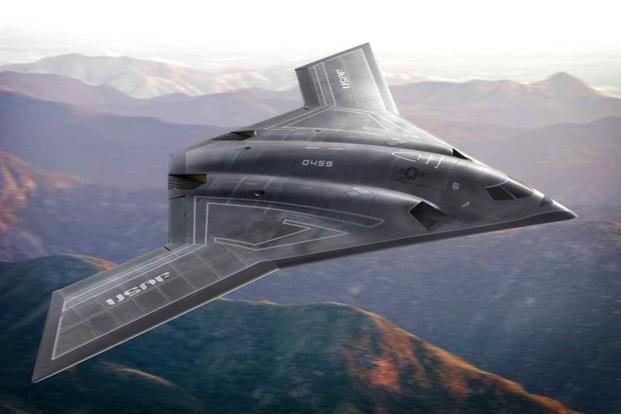Northrop Grumman Corp. won a major contract to build the U.S. military’s future fleet of stealth bombers, the Pentagon announced.
A team led by Northrop, maker of the B-2 Spirit stealth bomber and drone aircraft, beat out another led by Boeing Co., the world's largest aerospace company, and Lockheed Martin Corp., the world's largest defense contractor, for the award as part of the U.S. Air Force's Long Range Strike Bomber, or LRS-B, program.
The $21.4 billion initial contract -- the most significant since the F-35 Joint Strike Fighter award more than a decade ago -- was disclosed on Tuesday evening with the Defense Department daily contract announcements. Defense Department and Air Force leaders later discussed the agreement during a press conference at the Pentagon.
Defense Secretary Ashton Carter said the bomber will "deliver capabilities across the full range of military operations against the most technologically advanced opponents."
The next-generation bomber will be designed to fight through surface-to-air missiles, as well as electronic and information attack. It will also accommodate lasers and directed-energy systems, hypersonic missiles and other new and emerging technologies.
Air Force Secretary Deborah Lee James said the new bomber will allow the service to "launch from the continental United States airstrikes that would be able to strike any location in the world."
Air Force Chief of Staff Gen. Mark Welsh said, "The LRS-B will provide our nation tremendous flexibility as a dual-capable bomber and the strategic agility to respond and adapt faster than our potential adversaries."
The Air Force currently has 158 bombers, including 76 B-52 Stratofortresses, 63 B-1 Lancers and 20 B-2 Spirits, yet with the exception of the latter, many of the planes are susceptible to precision-guided weapons developed by China, Russia, Iran and North Korea.
The existing bombers are also aging. Three generations of airman have flown the B-52 in combat, from Vietnam to Afghanistan, and the newest B-52 is more than a half-century old.
The service has said it wants to buy between 80 and 100 new bombers at no more than $550 million apiece to replace its aging fleet of B-52 Stratofortresses made by Boeing Co. and a least a portion of its B-1 fleet.
That latest unit cost is estimated at $511 million per plane in fiscal 2010 dollars, according to Bill LaPlante, head of Air Force acquisition. Adjusted for inflation, the unit cost is $564 million per plane in 2016 dollars, assuming an order of 100 aircraft, he said.
The program is estimated to cost at least $42 billion over the next decade alone, making it a critical contract for Northrop, which is based in Falls Church, Virginia, to secure its place in the combat aircraft market.
"The Air Force has made the right decision for our nation's security," Wes Bush, the company's chief executive officer. "As the company that developed and delivered the B-2 Spirit stealth bomber, we look forward to providing the Air Force with a highly-capable and affordable next-generation Long-Range Strike Bomber."
He added, "Our team has the resources in place to execute this important program, and we’re ready to get to work."
The contract calls for the company to develop the first 21 production aircraft, along with associated engineering and manufacturing work. The planes are scheduled to begin flying in an operational capacity in 2025.
It wasn't immediately clear whether Boeing and Lockheed plan to protest the award, a move that has become increasingly common as defense contractors compete for tightening defense dollars.
The Boeing-Lockheed team said it was "disappointed" by the decision.
"We will have further discussions with our customer before determining our next steps," Boeing said in a statement. "We are interested in knowing how the competition was scored in terms of price and risk, as we believe that the combination of Boeing and Lockheed Martin offers unparalleled experience, capability and resources for this critically important recapitalization program."
Note: This story has been updated with additional information from the press conference and company statements.
--Brendan McGarry can be reached at brendan.mcgarry@military.com.



























